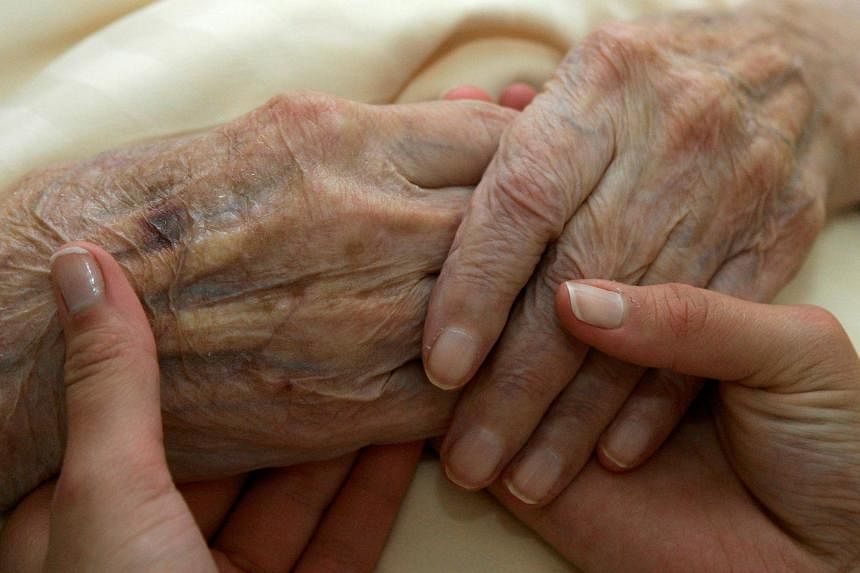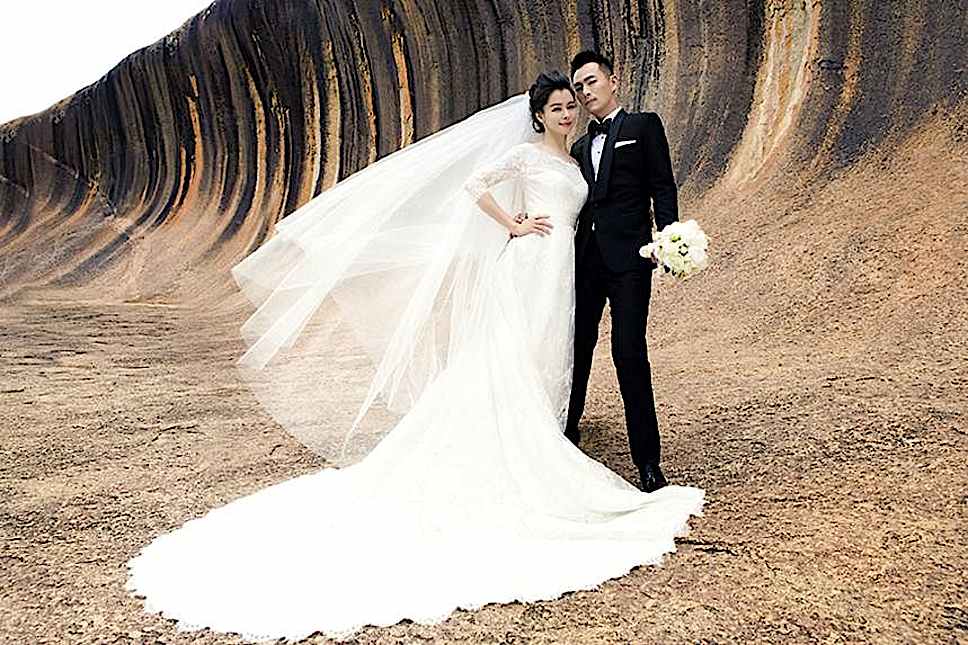My uncle’s days were numbered. So he made them count
My uncle’s peaceful passing, surrounded by loved ones in the last weeks of his hospice stay, is a lesson on life lived to the full right to the last day.

Family and friends surrounded my uncle’s bed in the hospice as we sat with him in his last hours.
Uncle Soon Heng’s emaciated body lay there, his chest barely moving.
One by one, his organs began to shut down. Insulin levels plunged to zero. A nurse came by periodically to place a finger at his neck or wrist to check for a pulse.
Yet there was a beautiful dignity in this bedside gathering, with my 72-year-old uncle looking calm and peaceful. No clinical beeps punctured the air. At his request, there were no invasive tubes attached to his body, nor was he hooked up to an apparatus monitoring his vitals. He had only an oxygen mask and a thin line of morphine needed to keep him comfortable.
Moments after my uncle passed, his god-son Jonathan and god-daughter Janessa, both registered nurses, volunteered to take over the routine duties of the hospice nurse to clean his body.
As they dressed him in his chosen attire comprising a simple, short-sleeved checkered shirt with maroon and brown lines, and a pair of long black trousers, I heard them speak – from behind drawn curtains – words of comfort and closure. It was a sincere, deeply emotive and endearing act of love and kinship for Uncle Soon Heng.
He was my father’s youngest brother, and they had been close.
It was my first time witnessing a person in the moments preceding his last breath.
Choosing how we go
Reflecting on this, and his life lived to the full even in the weeks leading up to this, I realised this is how we would all prefer to go – sharing our final days with family, without regret, and at a time, place and manner of our choosing.
We do this recognising costly medical interventions to prolong life only delay the inevitable and there is little left wanting. For we have lived a full life, not necessarily one of riches and experiences, but with the quiet, modest company of loved ones.
At a time of rising individualism and families drifting apart, with 20 / 20 hindsight, my uncle’s meticulously planned arrangements for his passing, and the four weeks leading up to it filled with family and food, constituted a long and beautiful goodbye.
This resonates with me in today’s era of fast fashion, fast food, fast shopping, and sometimes fast, shallow relationships. We need to step back, slow down and savour the richer nuances of life – and death. In this, the dignified passing of my uncle is its own legacy for his close-knit extended family, and I think it will hold value for others too.
A cancelled reunion
The goodbye, I now realise, began with a cancelled reunion. A few weeks before my uncle’s four-week hospitalisation, my father Soon Hock had invited his family over to try my mother’s signature dish, long-bean-pork-belly rice.
It was meant to be a gathering for everyone to catch up over conversations and home-cooked food. But my uncle’s debilitating health took a sudden turn for the worse. He was transferred to a hospice to receive palliative care. The gathering was cancelled.
But once he was ensconced there, the hospice kindly made special arrangements for a reunion with his immediate family in a quiet, empty area there. That day, he must have sprightly changed out of his hospital garb. Together with his wife Christina, son Roysten, daughter-in-law and grandchildren, everyone sat around a table to have a meal together.
The following day, the hospice yet again gave special permission for my uncle’s elderly siblings to gather for a family photograph, waiving the two-visitor restriction. My uncle did not get out of bed that day, so everyone stood around him in a circle.
It was as if the extended family had, as 13th-century Persian poet Rumi describes, stepped “out of the circle of time and into the circle of love”, providing a ring of embrace. This last group photograph records the poignant moment: an elderly sister-in-law sits in a wheelchair, an older sister holds a walking cane, others are red-eyed with reluctant smiles, many are white-haired.
The hospice’s arrangement, a pure act of compassion, was commendable – it imbued the ethos of humanity in healthcare. The family could not have asked for more.
Leaving a legacy
Despite his days being numbered, my uncle lived them out in dignity, driven by purpose. Even as his pain had to be assuaged by morphine, he used his last burst of bodily strength and mental resolve to compose a remarkable nine-page document in Chinese of his 72 years.
I was moved by this labour of love. To think that as he lay on the hospice sheets, he transferred – by steadfast pen strokes onto paper – thoughts from his lucid mind, digging deep into memories. It must have taken a toll. Yet he persisted.
Amid this, he received a stream of visitors – he must have touched many lives. When my father brought him his favourite Teochew chive kueh, at first my jovial-natured uncle chowed down in delight. But towards the end, he could manage only morsels of soft food… and then, none.
My 67-year-old aunt Christina cancelled a bucket-list trip to Genting Highlands, Malaysia, earlier planned with my father. Thankfully, the brothers had managed to make two earlier trips together the previous year.
An enduring tribute to loved ones
The night before he passed, my uncle had finished his writings, and someone helped compile them, including photographs of persons, places, passages, phases and phrases. He wrote of family life, childhood, career milestones, camaraderie with friends and colleagues, and travels.
As the youngest of eight siblings in a large Teochew family, he said my father helped him the most in his schooling years. He paid tribute to his brothers, sisters and sisters-in-law who looked after him as a child after his mother – my grandmother – died when he was only four.
He titled this document “1117 Legacy Work” – named matter-of-factly after his hospice ward and bed numbers.
This was a farewell gift that accompanied a quiet resolve to leave this world knowing he had lived, laughed, loved, been loved and was now ready to let go.
My uncle was clear in how he wished to be mourned and remembered. He wanted a five-night wake at the void deck of the block where he had lived. He chose not to undergo the conventional embalming process. His casket was to be sealed and closed. He opted to go the way he had come into this world: naturally. There was no need to complicate things.
My uncle’s end-of-life philosophy pushed me to re-evaluate my own preferences for when my time arrives. Indeed, if I had never liked putting on make-up when alive, why would I allow others to do so for me after I am gone?
Questions of life and death
In a world of upheavals, tension, uncertainty and disorder, the passing of time is the only constant. When not much quantity of time is left, we instinctively focus on its quality or what’s left of it.
I pondered these questions: What goes through our mind when we count down to “D-Day”? How should we pass time when we know it will soon be up? Do we go ahead and do, eat or drink whatever we want? Would our hearts be heavy with burdens, or lighter with no more cares or attachments?
I reflected on these layered, dimensional ideas in the context of even more questions: What kind of signals or signs are there when death is impending? What emotion, mood or atmosphere is there – relief, reprieve, repose, regret, renewal or remembrance?
What feelings does one experience during this last passage of time? How does life taste? What do we see when we close our eyes one final time?
Laying uncle to rest
Having initially opted for a sea burial, my uncle had changed his mind after learning of a newly availed option.
Family members, emerging tear-stained and heart-strained from the funeral, congregated at the Garden of Peace within the Choa Chu Kang Cemetery. The tranquil spot, which opened in 2021, is Singapore’s first and only in-land ash-scattering garden and is open to all religious faiths.
Relatives took turns to scatter his ashes from a canister over a pebbled, landscaped garden bed. They then lightly drizzled water from a watering can over the ashes. It was a scorching afternoon – apt, as my uncle disliked the cold. The tropical garden would suit him better than the chills of the sea.
As we stood there united in mourning, we quietly said our goodbyes. I thought of the enduring gifts of his life, his own written eulogy and the legacy of the lesson of his good death.
And I am comforted by Rumi’s words: “Goodbyes are only for those who love with their eyes. Because for those who love with heart and soul, there is no such thing as separation.”
- Lee Seow Ser is a former lawyer, and a mother, editor and author of eight children’s books.
Join ST's Telegram channel and get the latest breaking news delivered to you.









No comments:
Post a Comment